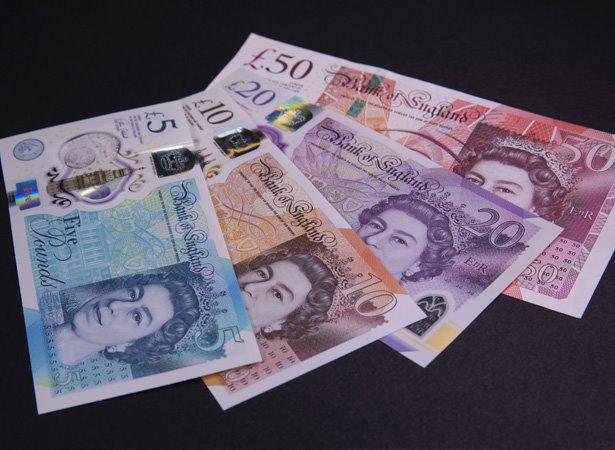The Biggest Cash Myths - Busted!
29 June 2020

There has been a lot of information to deal with lately. Every time you look at the news, it seems like the world has shifted just a little bit more. This has led to a lot of theories and ideas, being picked up and taken as gospel. A lot of these theories revolve around what the ‘new normal’ will be.
When it comes to cash; there have been voices speculating about its decline for decades. As a result, many businesses are not sure whether to begin phasing out cash from their businesses. But, what’s the truth about cash? In this post, Volumatic are sharing the biggest cash myths that you may have heard and shedding light on the truth, not the rumour!
Myth - The WHO said we should stop using cash
Fact – Cash is still safe to use
A few big media outlets reported that the World Health Organisation had said that cash was no longer safe, and that contactless payments should be used instead. However, this is not true. The WHO have since clarified their statement. They simply said that people should wash their hands after handling money. This is the same advice they give for touching any surface, including touching cards and payment devices and your mobile phones.
When it comes to the coronavirus, we all now know that it can live on surfaces for a long time. This is where the concerns about cash come from. However, the type of surface matters a lot. Studies have shown that coronavirus finds ploymer surfaces, like bank notes, inhospitable. This means that they don’t last as long on them as they do other surfaces.
So using cash is no more dangerous than touching anything else, like for instance the items you are buying.
Myth - Cash will be obsolete soon
Fact – Cash is still a vital and well-liked form of payment
There has been a lot of speculation about the future of cash as a payment method. People have been claiming that cash is ‘dead’ since the introduction of card payments in 1966. In fact, in recent years for most countries around the world cash payments have been increasing. The only significant exceptions are in Russia and Sweden.
The reality of the situation is that not everyone has access to contactless payment methods. Some people find a feeling of security in using cash they can handle. 70% of people prefer the security of cash to potential fraud risk with other payment methods.
Even in Sweden where the nation is trying to go cashless, 7 out of 10 people don't want to see cash disappear completely.
It is worth noting that a lot of payment revolutions are seeking to achieve many of the things that cash already offers, for example, cryptocurrencies. Currencies like bitcoin are appealing because they provide anonymity, low transaction fees, and unfettered access. All of these are benefits of using cash.
Myth - Cash takes too long to process
Fact – Cash can be quickly counted and checked for forgeries
For some, the concerns around cash lie in the difficulty of handling it. There is a feeling that cash takes so long to process that it takes up valuable employee time. However, this doesn’t have to be the case. There are many cash counting devices available from Volumatic. These make the process of handling cash, transactions and cashing up quick and painless. You don’t even really need to have any maths skills to get a swift and accurate count.
What’s more, these cash handling devices can detect forgeries and will eliminate cash handling, which improves the safety for staff and reduces the risk of theft.
Myth - Cash is too expensive to process
Fact – Cash can be the cheapest payment method to process
Ther are many people who argue that cash is expensive to deal with. It takes too long to count it, and it takes up too much time to take it to the bank. Now it is entirely true that there is a time cost involved with handling cash. However, with an investment of a cash handling machine and effective time management, these costs are minimal and can be easily controlled, by a merchant’s actions. For example, Volumatic’s CounterCache intelligent (CCi) can cut cash processing costs by as much as 75%. This is not true when it comes to card payments.
There are a lot of fees involved with accepting card payment. You get charged between 1%-3% of every transaction. This percentage is on top of a flat fee for every sale. Then you have the service charge with the credit companies, where they charge you if you don’t make enough card sales. Finally, don’t forget that you may be hiring your PIN terminal. This is an extra charge per month. So, when you add it all up. Cash often works out to be the cheapest option.
Hopefully, with these myths busted, you’ll feel more comfortable to offer cash as a payment option in your business and have the reassurance that cash is here to stay.